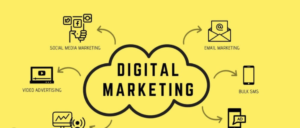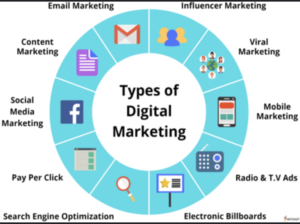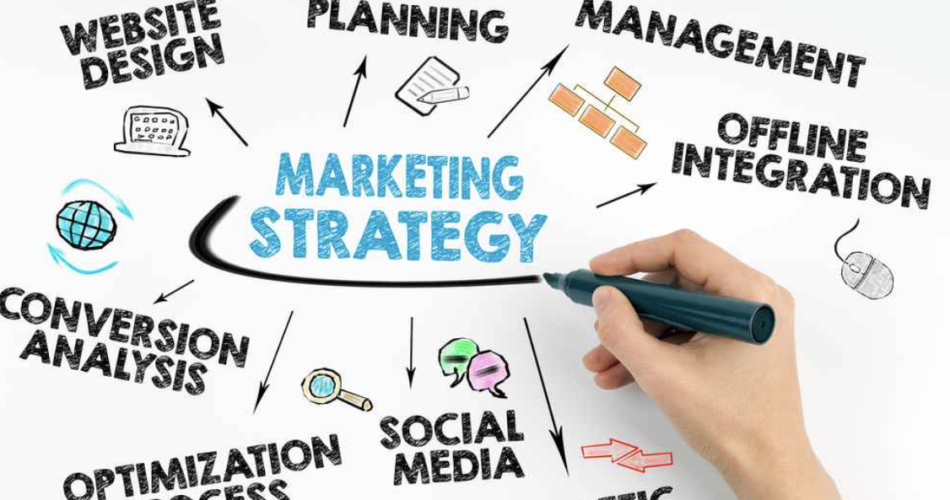As a seasoned marketing professional, I understand the importance of leveraging digital marketing tools to enhance your overall marketing strategy. In today’s fast-paced, digital-driven world, having the right tools in your arsenal can make all the difference in achieving your marketing goals and staying ahead of the competition.
In this comprehensive guide, I will delve into the world of digital marketing tools, exploring their various types, their benefits, and how to effectively integrate them into your marketing strategy. Whether you’re a small business owner, a marketing manager, or an experienced digital marketer, this guide will provide you with the insights and strategies you need to take your marketing efforts to new heights.

Digital Marketing Tools
Contents
- 1 Why Digital Marketing Tools are Essential for Your Marketing Strategy
- 2 Types of Digital Marketing Tools
- 3 Case Studies: Successful Use of Digital Marketing Tools
- 4 How to Choose the Right Digital Marketing Tools for Your Business
- 5 Implementing Digital Marketing Tools into Your Strategy
- 6 The Future of Digital Marketing Tools
- 7 Conclusion
Why Digital Marketing Tools are Essential for Your Marketing Strategy
In the ever-evolving landscape of marketing, digital tools have become indispensable. They offer a multitude of advantages that can significantly improve the efficiency and effectiveness of your marketing efforts. From streamlining content creation and social media management to optimizing your website’s performance and analyzing your data, these tools are the key to unlocking the full potential of your marketing strategy.
By leveraging digital marketing tools, you can:
- Enhance Productivity: Automate repetitive tasks, streamline workflows, and free up your time to focus on strategic initiatives.
- Improve Targeting and Personalization: Gain deeper insights into your target audience and tailor your messaging and campaigns accordingly.
- Increase Visibility and Reach: Optimize your online presence, improve search engine rankings, and expand your brand’s reach across various digital channels.
- Measure and Analyze Performance: Gain valuable data-driven insights to make informed decisions and continuously refine your marketing strategies.
- Stay Competitive: Leverage the latest tools and technologies to keep pace with industry trends and outperform your competitors.
By embracing digital marketing tools, you can unlock a world of possibilities and elevate your marketing strategy to new heights.

Digital Marketing Tools
Types of Digital Marketing Tools
The digital marketing landscape is vast and ever-evolving, with a wide array of tools available to suit various needs and goals. In this section, we’ll explore the different categories of digital marketing tools and the benefits they offer.
Keyword Research Tools
Effective keyword research is the foundation of any successful digital marketing strategy. Tools like Google Keyword Planner, Ahrefs, and SEMrush can help you identify the most relevant and high-performing keywords for your business, allowing you to optimize your content and improve your search engine visibility.
SEO Tools for Optimizing Your Website
Search engine optimization (SEO) is crucial for driving organic traffic to your website. Tools such as Yoast SEO, Screaming Frog, and Google Search Console can help you analyze your website’s performance, identify technical issues, and implement on-page and off-page optimization strategies to boost your search engine rankings.
Content Creation and Management Tools
Producing high-quality, engaging content is essential for attracting and retaining your audience. Tools like Canva, Grammarly, and Trello can streamline your content creation and management processes, enabling you to create visually appealing and well-written content more efficiently.
Social Media Management Tools
Navigating the ever-changing social media landscape can be a daunting task. Tools like Hootsuite, Buffer, and Sprout Social can help you schedule and publish content, monitor your social media presence, and engage with your followers more effectively.
Email Marketing Tools
Email marketing remains a powerful tool for reaching and nurturing your audience. Tools like MailChimp, Constant Contact, and Drip can help you create and send professional-looking emails, manage your subscriber lists, and track the performance of your email campaigns.
Analytics and Reporting Tools
Measuring the success of your marketing efforts is crucial for making data-driven decisions. Tools like Google Analytics, Mixpanel, and Hotjar can provide you with comprehensive insights into your website’s performance, user behavior, and campaign effectiveness, allowing you to optimize your strategies accordingly.
Conversion Rate Optimization Tools
Improving your website’s conversion rate can have a significant impact on your bottom line. Tools like Optimizely, VWO, and Google Optimize can help you conduct A/B testing, personalize your website content, and implement other optimization strategies to increase your conversions.
By understanding the various types of digital marketing tools and how they can benefit your business, you can create a well-rounded and effective marketing strategy that drives tangible results.
Case Studies: Successful Use of Digital Marketing Tools
To illustrate the power of digital marketing tools, let’s explore a few real-world case studies:
Case Study 1: Improving SEO with Screaming Frog
Company X, a leading e-commerce retailer, was struggling to improve its search engine rankings and drive organic traffic to its website. By utilizing Screaming Frog, a powerful SEO tool, the company was able to:
- Identify and fix technical issues on their website, such as broken links and duplicate content.
- Optimize their website’s metadata, including title tags and meta descriptions, to better align with their target keywords.
- Implement a comprehensive link-building strategy to improve their website’s authority and off-page SEO.
As a result, Company X saw a significant increase in organic traffic, with a 35% improvement in their search engine rankings and a 25% boost in overall website conversions.
Case Study 2: Streamlining Social Media Management with Hootsuite
Y, a small business in the hospitality industry, was finding it challenging to keep up with the demands of managing their social media accounts across multiple platforms. By adopting Hootsuite, a social media management tool, they were able to:
- Schedule and publish content in advance, ensuring a consistent and well-curated social media presence.
- Monitor and respond to customer inquiries and comments in a timely manner, improving their overall customer engagement.
- Analyze the performance of their social media campaigns and make data-driven decisions to optimize their strategies.
The implementation of Hootsuite allowed Y to save 8 hours per week on social media management, leading to a 20% increase in their social media following and a 15% boost in customer acquisition through their social channels.
These case studies demonstrate the tangible benefits that digital marketing tools can bring to businesses of all sizes, from improving SEO and driving organic traffic to streamlining social media management and enhancing customer engagement.
How to Choose the Right Digital Marketing Tools for Your Business
With the abundance of digital marketing tools available, it can be overwhelming to determine the right ones for your business. Here are some key factors to consider when selecting the appropriate tools:
- Business Objectives: Clearly define your marketing goals and objectives, and then identify the tools that can best support those goals, whether it’s improving SEO, enhancing social media presence, or optimizing conversions.
- Features and Functionality: Evaluate the specific features and capabilities of each tool to ensure they align with your needs. Consider factors such as ease of use, integration capabilities, and the level of customization and reporting available.
- Budget and ROI: Assess the cost of the tools and weigh the potential return on investment. Look for tools that offer the best value and fit within your marketing budget.
- Team Capabilities: Assess the skills and expertise of your team to ensure they can effectively utilize the selected tools. Provide training and support as needed to maximize the tools’ potential.
- Scalability: Choose tools that can grow and adapt as your business and marketing needs evolve over time.
- User Reviews and Ratings: Consult with industry peers, read online reviews, and seek recommendations to understand the real-world performance and customer satisfaction of the tools you’re considering.
By carefully evaluating these factors, you can build a well-rounded digital marketing toolkit that supports your business objectives, streamlines your workflows, and drives measurable results.
Implementing Digital Marketing Tools into Your Strategy
Integrating digital marketing tools into your overall marketing strategy is a crucial step in maximizing their impact. Here’s a step-by-step guide to help you successfully implement these tools:
- Assess Your Current Marketing Landscape: Conduct a comprehensive audit of your existing marketing efforts, including your website, social media presence, email campaigns, and any other digital marketing initiatives. Identify areas for improvement and opportunities for optimization.
- Define Your Goals and KPIs: Clearly define your marketing goals, such as increasing website traffic, improving lead generation, or boosting sales. Establish key performance indicators (KPIs) that will help you measure the success of your digital marketing efforts.
- Research and Evaluate Digital Marketing Tools: Explore the various digital marketing tools available and evaluate them based on the factors outlined in the previous section. Prioritize the tools that best align with your business objectives and marketing needs.
- Implement and Integrate the Tools: Carefully integrate the selected tools into your marketing workflow, ensuring seamless coordination and data sharing across your digital marketing efforts.
- Train Your Team: Provide comprehensive training to your team on the proper use and implementation of the digital marketing tools. Encourage ongoing learning and skill development to ensure your team can maximize the tools’ potential.
- Monitor and Analyze Performance: Regularly track and analyze the performance of your digital marketing initiatives using the tools’ reporting and analytics features. Identify areas for improvement and make data-driven decisions to optimize your strategies.
- Continuously Optimize and Iterate: Continuously refine your digital marketing strategies, experimenting with new tools and techniques to stay ahead of the curve and adapt to changing market conditions.
By following this step-by-step approach, you can effectively integrate digital marketing tools into your overall marketing strategy, driving measurable results and positioning your business for long-term success.
The Future of Digital Marketing Tools
As the digital landscape continues to evolve, the future of digital marketing tools promises even greater advancements and capabilities. Here are some key trends and developments to watch for:
- Artificial Intelligence (AI) and Machine Learning (ML): AI and ML-powered tools will become increasingly prevalent, offering advanced automation, predictive analytics, and personalization capabilities to enhance the effectiveness of your digital marketing efforts.
- Augmented Reality (AR) and Virtual Reality (VR): The integration of AR and VR technologies into digital marketing tools will create immersive and engaging experiences for your customers, allowing for more interactive and memorable brand interactions.
- Hyper-Personalization: Leveraging data-driven insights, digital marketing tools will enable even more personalized and targeted experiences, helping you to deliver the right message to the right audience at the right time.
- Integrated Platforms: The trend towards all-in-one digital marketing platforms will continue, providing businesses with a centralized hub for managing their entire digital marketing ecosystem, from content creation to campaign optimization.
- Voice Search and Voice-Activated Tools: As voice search and voice-activated technologies become more prevalent, digital marketing tools will adapt to support these emerging interfaces, allowing businesses to optimize their content and strategies for voice-based interactions.
- Sustainability and Ethical Considerations: As concerns around data privacy and environmental impact grow, digital marketing tools will need to incorporate more sustainable and ethical practices, such as data anonymization and carbon-neutral operations.
By staying informed about these emerging trends and developments, you can position your business to be at the forefront of the digital marketing revolution, ensuring that your marketing strategies remain relevant, effective, and future-proof.
Conclusion
In the dynamic world of marketing, digital tools have become indispensable for businesses of all sizes. By leveraging the power of these tools, you can enhance your productivity, improve your targeting and personalization, increase your visibility and reach, measure and analyze your performance, and stay competitive in the ever-evolving digital landscape.
To take the next step in optimizing your marketing strategy with digital tools, schedule a consultation with our team of marketing experts. We’ll help you identify the right tools and strategies to drive tangible results for your business. Contact us today to get started!
As you embark on your digital marketing journey, remember to stay adaptable, experiment with new tools and techniques, and continuously refine your strategies based on data-driven insights. By embracing the power of digital marketing tools, you can unlock a world of possibilities and propel your business to new heights of success.
